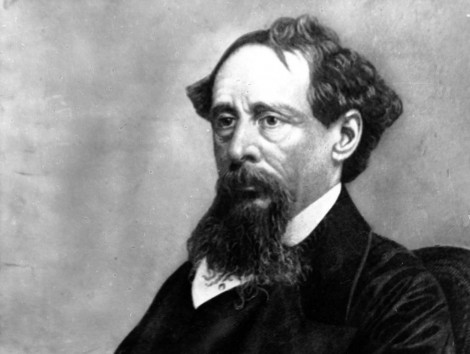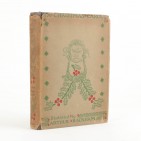DICKENS, Charles
“Please sir, I want some more.”
Generally regarded as the greatest of all the Victorian novelists, Charles John Huffam Dickens was born into a family of precarious financial stability, his father’s persistent debt resulting in the 12 year old Charles having to find employment in a boot blacking factory. His firsthand experiences of poverty and child labour gave him the insight to become the most vigorous and influential voice of social injustice of his age. Although he was able to return to school, by the time he was 15 he was in full time permanent employment working first as an attorney’s clerk and then, in 1830, as a reporter. In 1833, still in his early 20s, he adopted the pseudonym Boz, and started contributing short essays, or sketches, to the Monthly Magazine. These were collected together by the publisher John Macrone and issued in book form as Sketches by Boz in 1836. He immediately started work on The Posthumous Papers of the Pickwick Club, which was issued in monthly parts before being published in book form by Chapman and Hall in 1837. Pickwick was an instant success and Dickens was able to embark on a full time career as a novelist. Over the following 30 years he wrote some of the best known and best loved novels in English literature, including Oliver Twist (1838), Nicholas Nickleby (1839), A Christmas Carol (1843), David Copperfield (1850), A Tale of Two Cities (1859) and Great Expectations (1861), each time publishing them in monthly parts, followed by the complete book in cloth. The novels have never lost their appeal, being as popular today as they were 150 years ago, and many of his phrases, characters and ideas have engrained themselves in modern culture.
He died, probably of a stroke, whilst writing Edwin Drood, and was buried at Westminster Abbey. On his tomb is written "He was a sympathiser to the poor, the suffering, and the oppressed; and by his death, one of England's greatest writers is lost to the world."
Please scroll down to see our wide range of rare books, first editions and manuscripts by Charles Dickens.
Add to favourites








